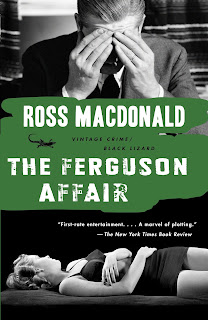It’ll be a footnote when the definitive history of Covid-19 is written, but it’s worth pointing out: Rosemarie’s employer was one of the first—possibly the first—in the United States to mandate remote work when the pandemic started. Rosemarie borrowed a monitor from the office to use at home. For over two years, she’d set it up on our kitchen island every morning and take it down each evening, the ritual marking the parameters of the new workday. It was large enough to be inconvenient—on weekends, we had to move it to do laundry—but absolutely necessary.
On a Friday earlier this month, at the end of a week when Rosemarie was in the office for five straight days for the first time since March 2020, she announced, “I’m returning the monitor. I’m at work enough that I don’t need it anymore.” We toasted what felt like a milestone that night, a sign that the pandemic was finally, perhaps, in the rear-view mirror.
Forty-eight hours later, we were both down for the count. After three years of ducking, diving, and blind luck, Covid had caught up to us. We’re fully vaccinated—get your boosters, people—so our cases were mild, and we’re back in the pink now. But “mild” Covid still rendered us completely useless for over a week, with a protracted recovery after that.
We’re still glad Rosemarie returned the monitor.
What I’m Watching
“The Russians put our camera made by our German scientists and your film made by your German scientists into their satellite made by their German scientists.”
Troll (2022). I can’t be the only person who has asked, “What would a Scandinavian kaiju flick be like?” Netflix has provided the answer. Every classic monster movie trope is here, delivered with reverence and fresh life by their framing in Norwegian folklore. The ending promises a sequel, and I want it.
Marlowe (2023). All the glassware is too big.
What I’m Reading
The Ferguson Affair, by Ross Macdonald (1960). You crave comfort in your sickbed. While I was sweaty and feverish, I thought, “What I’d really love right now is a new Lew Archer novel.” A few years ago, I heeded the advice of several critics and read Macdonald’s landmark private eye series in sequence, the better to appreciate his evolution from writer working in the Hammett/Chandler mold to one pushing the form into new terrain. After finishing those books, I moved on to the rest of Macdonald’s work, holding two novels in reserve. Covid drove me to break the glass on The Ferguson Affair, which turns out to be an Archer novel in all but name. He wrote it after his breakthrough, 1959’s The Galton Case; Tom Nolan noted in Ross Macdonald: A Biography that despite widespread critical acclaim and its significance in Macdonald’s career, Galton proved a commercial disappointment, forcing the author back to the typewriter because, as Macdonald put it in a letter, “I have to make some money writing this year.” (Always reassuring to read one of the best in the game hustling for a buck.) Ferguson unfolds in Macdonald’s signature Southern California setting and its protagonist, small-town lawyer Bill Gunnarson, is essentially Archer with a very pregnant wife and a budding career to bear in mind, a foundation that make him a bit less preachy than his shamus semblable. The plot, which starts with Gunnarson assigned to represent a stubborn nurse on a stolen property charge, eventually becomes classic Macdonald as the sins of the past wreak havoc on the present. Not up to the level of the best Archers—it goes a twist too far—but exactly what I wanted to read. Fingers crossed I’m not in as bad a shape when I finally reach for that last Macdonald.
What I’m Drinking
In my previous post, I sang the praises of blanc vermouth. Since then, I’ve incorporated it into my martinis, settling on what is now the Chez K default.
2 oz. gin
.5 oz dry vermouth
.25 oz blanc vermouth
2 dashes grapefruit bitters
Stir. Strain. Garnish with a lemon twist.
Side note: Whenever someone says “I’m famous for my martinis,” that means they don’t use vermouth. Which is fine. Just don’t call it a martini.

